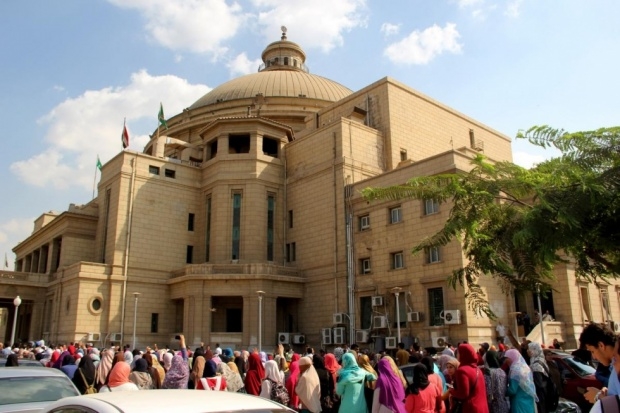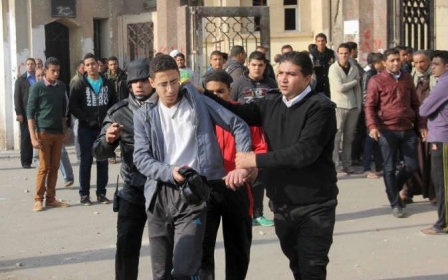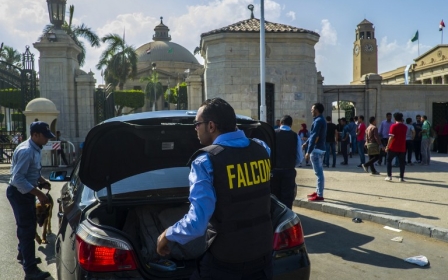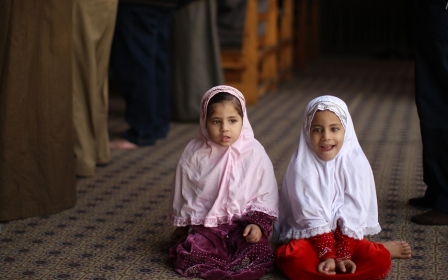Egypt students denied their dream education in Cairo

Hundreds of students from across Egypt’s southern and Delta provinces have been angered by a ministerial decision to impose a regional distribution system on the enrolment of students into two of Cairo University’s top faculties.
The Egyptian Minister of Higher Education, Alsayed Abdel Khaleq, announced on Monday that students from governorates other than Greater Cairo, the Canal (cities of Suez and Ismailia) and the Sinai would be banned from studying at Cairo University’s Faculty of Journalism and Mass Communication and Faculty of Economics and Political Science.
The decision caused an uproar among families of high achievers who had intended to apply to the two highly ranked departments. The students and their families say they are looking to take the minister to court over his "discriminatory" decision, the Egyptian al-Shorouk newspaper reported.
Hajar Mohamed, a high school graduate who scored 98% in her final examinations and who wished to join the university, feels disappointed that she has been offered a place in Alexandria’s newly founded economics and political science department.
“I feel a huge injustice against me. Just because I did my high school diploma in Alexandria, I can't join my dream school,” she told al-Shorouk.
Similiarly, Ihab Shehata told Arabic news website Alaraby al-Jadid that while his sister achieved a 98% score for her high school diploma, which would normally secure her a place at Cairo University’s Faculty of Mass Communication, she was instead offered a place at the journalism and mass communication branch of Zagazig University’s school of humanities.
Hala al-Saeed, dean of Cairo University’s Faculty of Economics and Political Science, however, welcomed the decision, saying that the “regional distribution system would reduce pressure on Cairo University, since many students from Egypt’s southern and Delta provinces come to study but don’t return to their villages,” reported Alaraby al-Jadid.
Cairo University houses Egypt’s only two fully fledged schools of political science and economics and journalism and mass communication. Other governorate universities have branches for both fields within more general departments such as the humanities or social sciences. Both of Cairo Universities schools are considered extremely prestigious, on a national and regional level, and many Egyptian high school students aim to join them.
In order to provide an alternative for students who had applied for Cairo University’s top non-science faculties, the Ministry of Higher Education reportedly established new departments for economics and political science and mass communication at provincial universities.
According to al-Shorouk, the ministry established two new faculties at Alexandria University in order to provide places for journalism and political science students from the Delta region, while newly founded political science and journalism and mass communication faculties established at the University of Beni Sueif would take in students based in Egypt's southern provinces.
The former dean of Cairo University’s Faculty of Mass Communications, Hassan Makawy, told al-Shorouk that the newly founded schools elsewhere lack the basic resources, infrastructure and staff required to deliver standardised courses for students in both fields.
According to al-Araby al-Jadid, an anonymous source within the Ministry of Higher Education said the minister's decision followed orders from the government security bodies which were directed at the minister of higher education shortly after high school diploma results were released.
At the beginning of the last academic year, campus protests broke out across several major cities calling for the release of imprisoned student activists and the removal of limits on academic freedoms imposed by Egypt’s military-led government.
Throughout 2014, campus protests regularly broke out across Egypt, despite a heavy-handed crackdown on students who demonstrated on university premises. Violent clashes took place between university students and police, making the authorities determined to ensure that demonstrations discontinue.
Egyptian President Abdel Fattah al-Sisi addressed the students of Cairo University during a special visit on 27 September, when he called on all Egyptian students to focus on their academic studies and to avoid involvement in political activism.
As part of a wide-ranging campaign to stifle popular dissent, the government gave itself broad powers to directly appoint university heads, dismiss faculty members without permission to appeal and force students to sign documents promising “not to participate in political activities”.
Reports have revealed that the majority of on-campus demonstrations were led and organised by students living in university dormitories or coming from regions outside Greater Cairo, Alaraby al-Jadid reported.
According to the ministerial source, security reports have also revealed that most students coming to Cairo from the southern and Delta provinces associate, if only ideologically, with Islamist movements and therefore may be inclined to actively oppose the government for its crackdown on dissent, specifically among the Muslim Brotherhood.
Commenting on the decision, Mohamed Reda Soufi, director of the Egyptian Centre for Crisis Management, said the regional distribution system was “catastrophic” and that the decision reflected deep disciminatory policies against students from Egypt’s southern and Delta provinces, reported Alaraby al-Jadid.
Soufi said the decision would lead hundreds of students to relocate to Cairo and Giza in order to overcome this policy.
Sherif al-Labban, director of Cairo University’s Faculty of Mass Communication, condemned the decision, saying that any student who had achieved the required score should have the opportunity to study at the renowned faculties that Cairo University offers, al-Shorouk reported.
New MEE newsletter: Jerusalem Dispatch
Sign up to get the latest insights and analysis on Israel-Palestine, alongside Turkey Unpacked and other MEE newsletters
Middle East Eye delivers independent and unrivalled coverage and analysis of the Middle East, North Africa and beyond. To learn more about republishing this content and the associated fees, please fill out this form. More about MEE can be found here.




